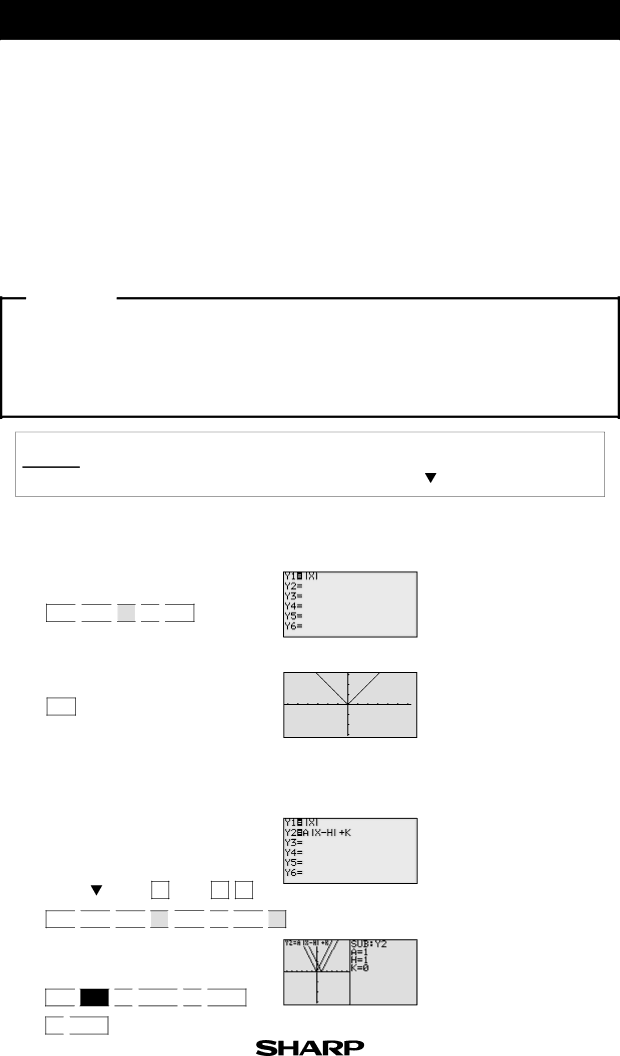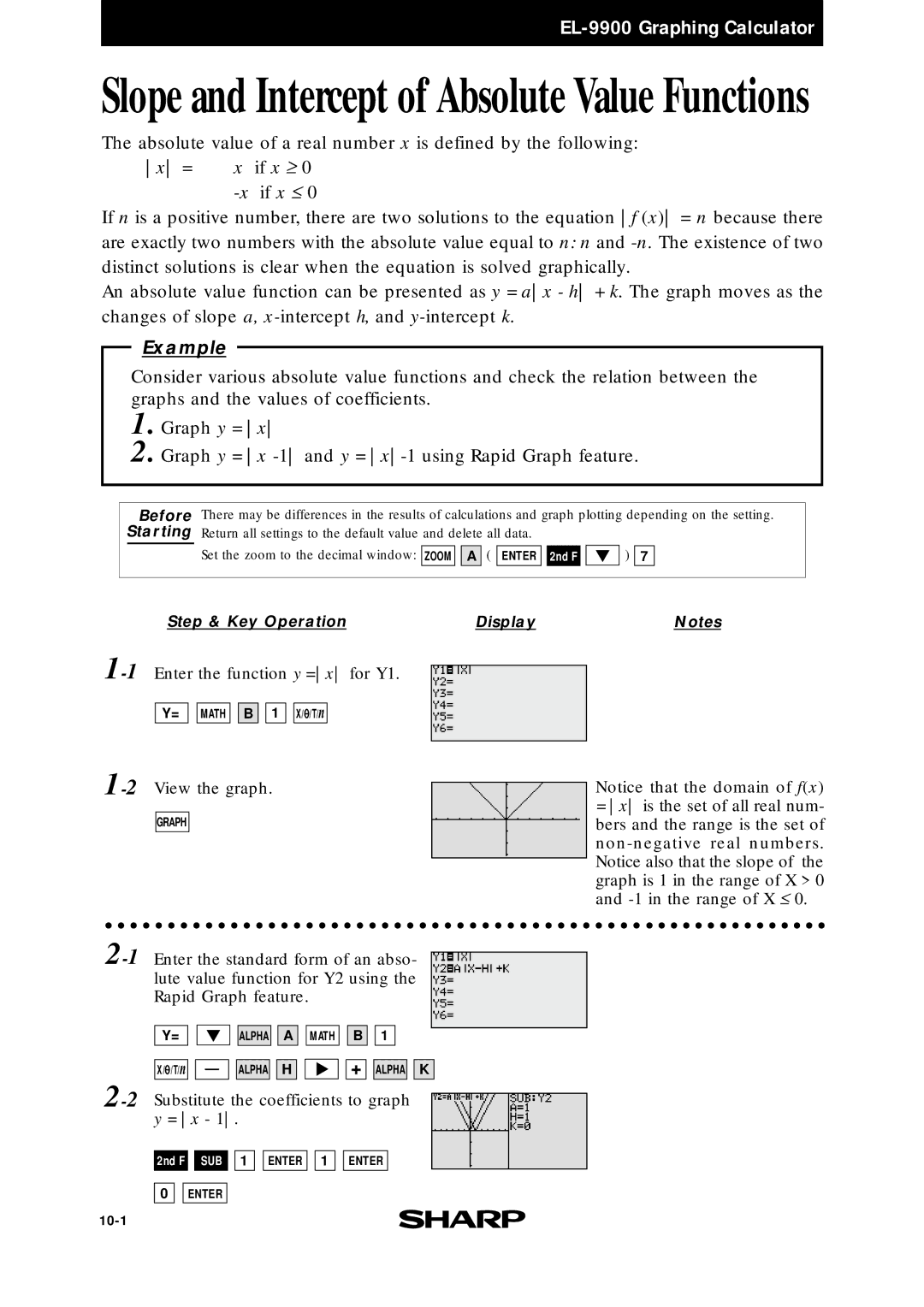
Slope and Intercept of Absolute Value Functions
The absolute value of a real number x is defined by the following:
x = | x if x ≥ | 0 |
| 0 |
If n is a positive number, there are two solutions to the equation f (x) = n because there are exactly two numbers with the absolute value equal to n: n and
An absolute value function can be presented as y = ax - h + k. The graph moves as the changes of slope a,
Example
Consider various absolute value functions and check the relation between the graphs and the values of coefficients.
1. Graph y = x
2. Graph y = x
Before There may be differences in the results of calculations and graph plotting depending on the setting. Starting Return all settings to the default value and delete all data.
Set the zoom to the decimal window: | ZOOM |
| A | ( | ENTER |
| 2nd F |
|
| ) | 7 |
Step & Key Operation | Display | Notes |
Y= ![]()
![]() MATH
MATH ![]()
![]() B
B ![]()
![]() 1
1 ![]()
![]() X/
X/![]() /T/n
/T/n
GRAPH
Notice that the domain of f(x)
=x is the set of all real num- bers and the range is the set of
graph is 1 in the range of X > 0 and
Enter the standard form of an abso- lute value function for Y2 using the Rapid Graph feature.
Y= |
|
|
| ALPHA |
| A |
| MATH |
| B | 1 |
X/![]() /T/n
/T/n![]()
![]() —
— ![]()
![]() ALPHA
ALPHA![]()
![]() H
H ![]()
![]()
![]()
![]()
![]() +
+ ![]()
![]() ALPHA
ALPHA![]()
![]() K
K
Substitute the coefficients to graph y = x - 1.
2nd F ![]()
![]() SUB
SUB ![]()
![]() 1
1 ![]()
![]() ENTER
ENTER ![]()
![]() 1
1 ![]()
![]() ENTER
ENTER
0 ![]()
![]() ENTER
ENTER
